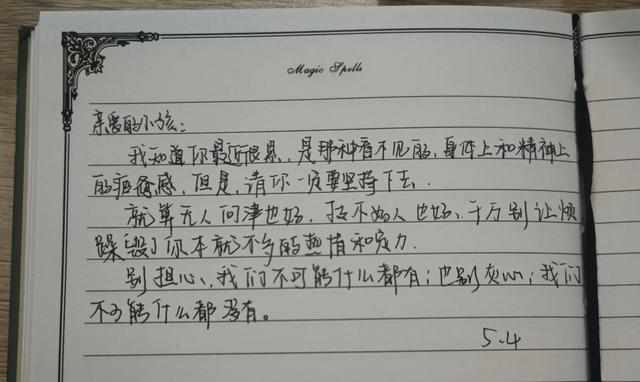
Emotional intelligence has become a topic at the forefront of human resources workshops, leadership groups, and corporate training sessions—and with good reason.
情商已经成为人力资源研讨会、领导小组和企业培训课程的前沿话题,这是有充分理由的。
Evidence shows that emotional intelligence plays a big role in workplace performance. Individuals with high emotional intelligence perform better and usually experience better psychological and physical well being.
事实证明,情商在工作表现中起着重要作用。具有高情商的人表现更好,而且通常在心理和生理上更加健康。
Emotional Intelligence Components
情商的要素
The concept of emotional intelligence was made popular by an author named Daniel Goleman. His 1996 bestseller, Emotional Intelligence, introduced it to the public. The idea was originally proposed by John Mayer and Peter Salovey in 1990.
情商的概念是由一位名叫丹尼尔•戈尔曼的作家提出的。1996年,他的畅销书《情商》向公众介绍了这个概念。情商这个观点最初是由约翰•梅尔和彼得•萨洛维于1990年提出的。
The model of emotional intelligence proposed by Salovey and Mayer contains four parts:
萨洛维和梅尔提出的情商模型包括四个部分:
1.Perceive emotions in oneself and others accurately
准确感知自己和他人的情绪
2.Use emotions to facilitate thinking
利用情绪促进思考
3.Understand emotions, emotional language, and the signals conveyed by emotion
了解情绪、情绪语言和情绪所传达的信号
4.Manage emotions to attain specific goals
管理情绪以达到特定目标

Studies have shown that emotional intelligence can be learned. It has become a billion-dollar industry, as training programs have proved very effective in helping people raise their emotional intelligence and perform at their best.
研究表明,情商是可以学习的。因为情商培训课程已经证明在帮助人们提高情商和发挥最佳表现方面非常有效,它已经成为一个价值数十亿美元的产业。
But you don't need a formal training program to boost your own emotional intelligence.
但你不需要一个正式的培训课程来提高你的情商。
Here are seven simple ways to boost your emotional intelligence.
这里有七个简单的方法来提高你的情商。
1. Label your emotions.
标记你的情绪。
People rarely like to talk about their feelings, despite the fact that our emotions affect every decision we make. Many people are much more comfortable saying things like "I had butterflies in my stomach" or "a lump in my throat" than what they are really feeling, which is often sadness or anxiety.
人们很少喜欢谈论自己的感受,尽管事实上我们的情绪会影响我们所做的每一个决定。许多人更愿意说"我的心里七上八下"或者"喉咙哽住"之类的话,而不是说他们真正的感受——通常是悲伤或者焦虑。
Practice labeling your emotions with real feeling words—frustrated, anxious, disappointed, etc. Check on yourself a few times a day, and pay attention to how you are feeling, even if you don't announce it out loud.
练习用"沮丧""焦虑""失望"等真正的感觉词汇来标记你的情绪。每天自查几次,注意你的感受,即使你没有大声宣泄出来。
2. Consider how your emotions affect your judgment.
想一想你的情绪是如何影响你的判断的。
Now that you know how you're feeling, take time to consider how these emotions are affecting your thoughts and behaviors. If you're sad, it may cause you to be afraid of rejection, and you may underestimate your chances of success.
既然你知道你的感受了,那花点儿时间想一想这些情绪是如何影响你的思想和行为的。如果你感到难过,这可能会让你害怕被拒绝,并且你可能会低估你成功的机会。
On the other hand, if you're overly excited about an opportunity, you may overestimate your chances. This could lead to taking risks without examining the potential consequences or drawbacks.
另一方面,如果你对一个机会过于兴奋,你可能会高估你的机会。这可能会让你在没有考虑潜在后果或不利条件的情况下承担风险。
To make better decisions, you need to recognize how your emotions are affecting your judgment. In doing so, you will balance the outlook of your own logic and emotion, and thus be better equipped to make decisions.
为了做出更好的决定,你需要认识到你的情绪是如何影响你的判断的。这样做,你的观点将在理性和感性上达到平衡,从而更好地做出决定。

3. Decide whether your feelings are a friend or an enemy.
判定你的感受是朋友还是敌人。
Every emotion we experience has the power to be helpful or unhelpful at times. The same emotion can affect us in either a positive or negative way, depending on how we use it.
我们所经历的每一种情绪有时有益有时又无益于我们。同样的情绪会以积极或消极的方式影响我们,这取决于我们如何利用它。
Once you determine what you are feeling at any moment, next consider whether that emotion is being a friend to you or an enemy at the time. Anger could be a friend when it helps you stand up for injustice. It could be an enemy, however, when you're entering a discussion with your boss.
一旦你确定了你的感受,接下来要考虑的是,此刻这种情绪对你来说是朋友还是敌人。当愤怒帮你对抗不公时,它就是你的朋友。但是,当你和老板讨论问题时,愤怒是你的敌人。
Sadness can be helpful when it reminds you to honor a person you no longer have. But it could be an enemy when it gets in the way of your motivation in life.
当悲伤提醒你去尊重一个你不再拥有的人时,它是有帮助的。但当它阻碍了你生活的动力时,它是你的敌人。
If you realize that sadness is working as an enemy, you must do what you can to regulate your emotions. Try to experiment with different coping strategies to help you do this. Maybe meditation for a few minutes can help you calm down. Afterward, even a simple activity like walking around the block might help you cheer up.
如果你意识到悲伤是敌人时,你必须尽你所能调节你的情绪。尝试用不同的应对策略来帮助进行调节。也许冥想几分钟可以帮助你平静下来。之后,即使是一个简单的活动,如绕街区散步,也可能帮助你振作起来。
4. Be responsible for your own emotions.
对自己的情绪负责。
Saying that your co-worker makes you feel bad about yourself, or blaming your boss for putting you in a bad mood, implies that you are letting other people control your emotions. Your ability to respond to your emotions involves your accepting full responsibility for them.
如果说你的同事让你自我感觉很糟糕,或者指责你的老板让你心情不好,这意味着你在让别人控制你的情绪。你对情绪做出反应的能力包括你对它们承担全部责任。
Only you can choose how you decide to respond to your circumstances and to other people. Remember this any time you are tempted to think someone else is dragging you down emotionally. So rather than think, "He's making me mad," try something like, "I don't like what he's doing right now, and I'm getting mad."
只有你可以选择如何去应对你的环境和他人。当你觉得别人在情感上拖累你的时候,请记住这一点。所以,与其认为"他让我生气了",不如试着接受是"我不喜欢他现在做的事。所以我很生气。"

5. Notice other people's feelings.
注意他人的感受。
Your understanding of how other people are feeling is one of the key components to raising your emotional intelligence. Focusing on this will prevent you from interrupting someone you disagree with or jumping into an argument.
你对他人感受的理解是提高你情商的关键因素之一。专注于此可以避免你打断与你意见相左的人或陷入争论。
Pay close attention to other people's emotional states. If you can recognize how someone is feeling, then you will better understand how that emotion is likely to influence that individual's perception and behavior.
密切关注他人的情绪状态。如果你能辨别出一个人此刻的感受,那么你就可以更好地理解那种情绪可能会如何影响这个人的感知和行为。

6. Limit your screen time.
限制你的屏幕时间。
Spending too much time on your digital devices will impair your relationships. In romantic relationships, studies have found that having a smartphone present while you're spending time with someone else can inhibit closeness and erode trust.
花太多时间在数码设备上会损害你的关系。在恋爱关系中,研究发现,当你和某人在一起时,如果有一部智能手机在身边,会抑制亲密关系,削弱信任感。
Too much screen time can also interfere with an individual's ability to read or understand emotions. And as you read earlier, this is one of the four critical components of emotional intelligence.
过多的屏幕时间也会影响一个人读懂或理解情绪的能力。正如你之前读到的,这是情商的四个要素之一。
A 2014 study published in Computers in Human Behavior found that preteens who spent five days at an outdoor camp without access to their digital devices greatly improved their ability to read other people's emotions. This improvement of understanding nonverbal emotions happened in just five days without their electronics.
2014年发表在《计算机与人类行为》杂志上的一项研究发现,在户外露营5天却无法使用数码设备的青少年,极大地提高了他们读懂他人情绪的能力。在没有电子设备的情况下,这种对非语言情感的理解在仅仅五天内就提高了。
Setting healthy limits on your technology would probably be a good idea. Don't have your phone out when you are talking face to face with people. Set aside time periods during the day when you won't use your phone—maybe the first hour after you wake up, lunchtime, or before bed.
合理地限制科技产品的使用可能是个好主意。当你和别人面对面交谈时,不要把手机拿出来。在一天中留出不使用手机的时间段,比如起床后的第一个小时、午餐时间或睡前。
Doing a digital detox every now and then can really do you some good. A few days without your electronics will better equip you in your ability to read other people's emotions.
时不时地做一个数字"排毒"真的对你有好处。几天不使用电子设备会让你更好地了解他人的情绪。

7. Reflect on your progress.
反思你的进步。
At the end of every day, reflect on your progress. Did you interact well with a frustrated co-worker? Acknowledge this of yourself.
在每一天结束时,反思你的进步。你和一个情绪沮丧的同事相处得好吗?承认这一点。
But then also notice the areas in which you need to improve. Did you get defensive about some tough feedback, or did anxiety prevent you from talking to your boss? Be careful to learn from those mistakes, and do better in the future.
但同时也要注意你需要改进的地方。你有没有因为一些严厉的反馈而产生抵触情绪,或者因为焦虑而无法与上司交谈?小心谨慎地从那些错误中吸取教训,以便将来做得更好。
There is always room to sharpen your skills when it comes to emotional intelligence. Enrolling in a training program can help you if you're feeling stuck. And you can always read a book or hire a coach to help you boost your emotional intelligence even more.
在情商方面,你总有提升的空间。如果你觉得被困住了,参加一个培训项目可以帮助你。你也可以通过读书或聘请私教来帮助你提高情商。
知识积累:
1. consequence n. The consequences of something are the results or effects of it. 结果;后果
2. drawback n. a disadvantage or problem that makes sth a less attractive idea缺点;不利条件
3. motivation n. the psychological feature that arouses an organism to action toward a desired goal动机;动力
4. perception n. the way you notice things, especially with the senses知觉;感知
5. inhibit v. to prevent sth from happening or make it happen more slowly or less frequently than normal 阻止;阻碍;抑制
6. erode v. to gradually destroy sth or make it weaker over a period of time; to be destroyed or made weaker in this way逐渐毁坏;削弱;损害
7. detox n. A detox is a treatment that is intended to remove poisonous or harmful substances from your body (身体的)解毒,排毒
【习惯用语】
I had butterflies in my stomach.
这个句子可不是像它的字面意思"我的胃里有蝴蝶",而是形容一个人一种持续不断的恐惧、紧张或忧虑的心情,可以翻译为:我的心里七上八下。
试想一下,如果一个人的胃里有很多蝴蝶在飞,该是有多么忐忑不安啊!
本文英文来自Psychology Today,已选入《快捷英语 活页英语时文阅读理解 中考19》,参考译文由"快捷英语"整理。转载需注明出处。
,






